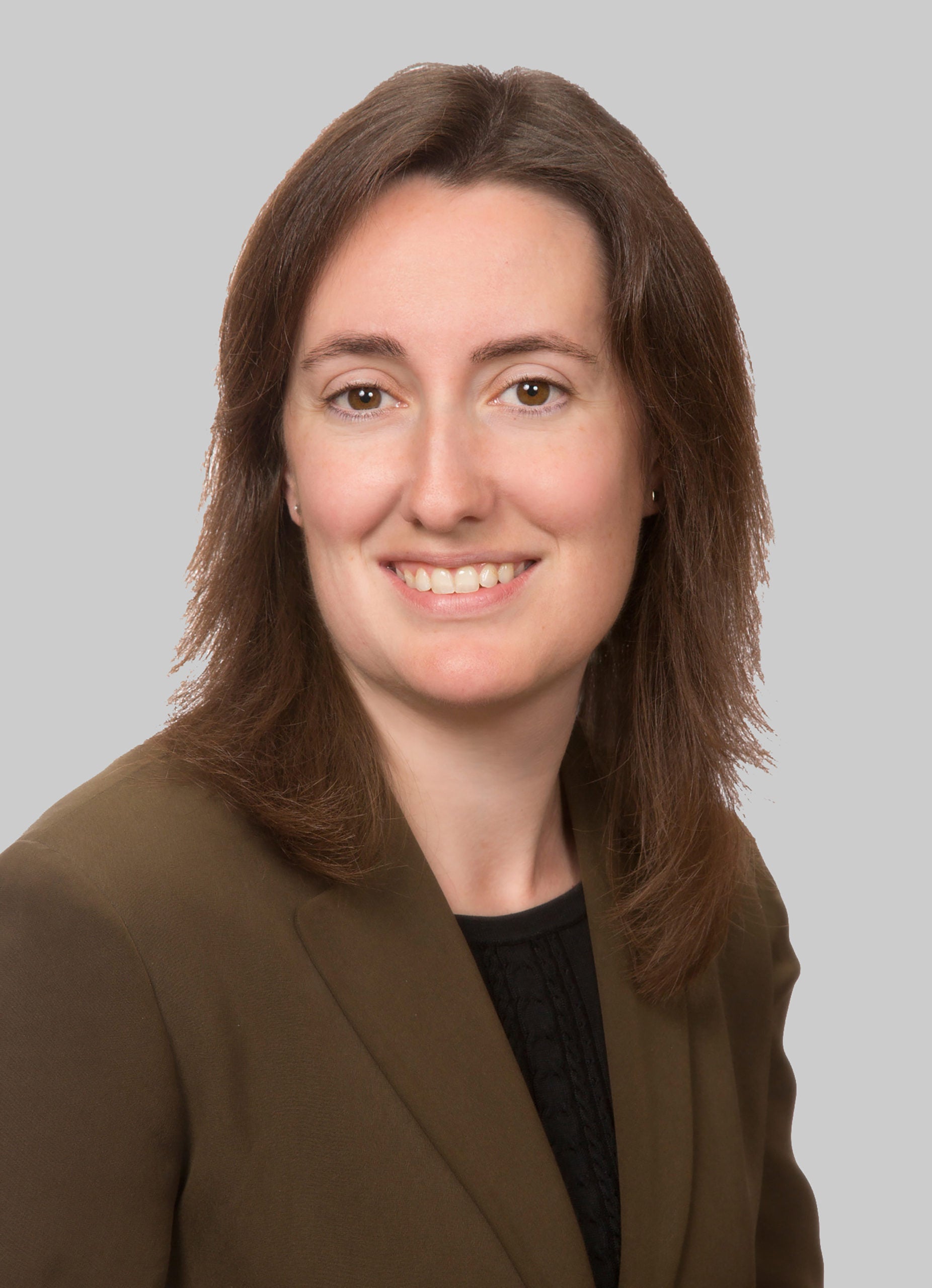With one of the most rigorous decarbonization laws in the country, Massachusetts must reduce its greenhouse gas emissions to net zero by 2050. That means at least one million homes have to switch from fossil fuels to electric, geothermal, or other alternative heat by 2030. With only a few hundred homes a year making the shift, according to the Boston Globe, progress is slow. Meanwhile, municipal and private buildings will need to convert, too, if the goal is to be met. But even in communities eager to decarbonize, a host of obstacles — legal, practical, and financial — stand in the way.
Helping key players across the state, including the City of Boston and environmental nonprofits, hit the net zero goal is a focus for the Emmett Environmental Law & Policy Clinic at Harvard Law School. For the past several years, students and staff attorneys in the clinic have worked on a number of decarbonization projects including several projects for Massachusetts cities and towns that don’t want to wait for the state to take more meaningful action.

“I think the clients we work with would say that Massachusetts has a good mandate, but the state hasn’t given them enough to work with yet,” says Aladdine Joroff, a staff attorney in the clinic and lecturer in law at HLS. “That’s why we’re seeing municipalities and advocacy groups pushing either to let cities and towns go forward faster than the state, or pushing for additional state laws.”
The clinic is helping on both these fronts. A couple of years ago, it started working with several towns and cities that want to require existing buildings to reach net zero by 2050. Clinical students analyzed whether proposed local laws would run into pre-emption problems with state and federal law, wrote a white paper outlining the authority for municipal action, and drafted a model law for cities and towns to use as a starting point. With that template as a base, several clinical students pivoted to helping Boston draft a proposed city ordinance, which was discussed at a public meeting this past summer. If the ordinance passes, “it would be one of the first in the country to do something like this for existing buildings,” says Joroff.
In another project, the clinic helped municipalities have a voice in an investigation by the Department of Public Utilities (DPU), initiated by a petition from the Massachusetts Attorney General in June 2020, into the role of gas companies in helping the Commonwealth meet its 2050 net zero climate goals. Questions to address in the proceeding include both, “What are the big gas utility companies going to do to help the transition? Should gas companies evolve their business model?” explains Joroff.
Several consumer and environmental groups, as well as gas companies, were engaged in the proceeding. But with a few exceptions, “municipalities were not particularly involved,” says Nathan Lobel ’22, in part because it was unclear how and when they could submit comments.

Led by Joroff, the clinic took on the challenge. Lobel spoke with municipal leaders and analyzed how to advocate effectively for their interests. After multiple rounds of conversations with local leaders, Lobel drafted a letter to the DPU reminding it that, as a key access point for residents to convert their heating, municipalities should be included in the process. Among other proposals, the letter insisted that decarbonization efforts can’t leave low-income residents stranded on the gas system, because it will become increasingly expensive as others shift off it. It also recommended that the DPU and gas companies not be constrained by current laws as they devise solutions, but instead should think big and for the future, and keep in mind that new legislation may be necessary.
At least 12 cities, towns and regional planning organizations have now signed onto the letter. This fall, Lobel is getting a different perspective on the project by working through the clinic at the Attorney General’s office with the team that is handling the DPU proceeding. After graduation, he wants to work for a government agency or advocacy organization involved in the clean energy transition, and the clinical experience has been invaluable.
“I think of climate crisis as one of, if not the defining crisis of our moment,” says Lobel. “But inequality is also a really big crisis and I like the fact that this area touches both climate and economic justice issues.”
In another clinical project, Ytran Hoang ’22 worked with an alliance of 20 plus organizations advocating for the transition off gas, including HEET, a nonprofit committed to cutting emissions by, among other strategies, transitioning the natural gas system to a geothermal energy distribution system. The gas infrastructure “is really old and leaky,” says Hoang, but simply replacing gas lines makes little sense in light of the decarbonization mandate. Her challenge was to investigate financing options for transitioning to geothermal systems and draft legislation to enact new financing mechanisms.

But how to incentivize gas companies to join in the effort? “We’re not trying to drive these companies out of business, we’re trying to figure out how they can evolve their businesses to continue providing services and keep maintaining gas systems until they are retired and operate renewable systems,” says Joroff.
The answer they’ve settled on is a financing method called securitization — state-backed, low-interest bonds — but it historically has been used in the energy sector to retire rather than convert energy facilities or systems. After speaking with financing experts, Hoang and the team decided securitization would work, and would help with conversion because the cost savings the gas companies enjoyed could be used to further support a transition from natural gas to non-emitting energy sources or be passed to consumers in the form of lower utility rates.
“That helps us transition to geothermal, which has so many health and other benefits,” says Hoang, who aided in drafting a bill that enables this financing method for gas companies. Critically, the bill also allows gas companies to get into the geothermal business by selling and distributing geothermal heat and maintaining the systems. The bill — which will be subject to a hearing in October — also provides for costs savings to be used to support the transition of individual households, including low-income homes, to geothermal and to retrain gas system workers.
Massachusetts has an opportunity to lead the way for other states that are inevitably thinking about transitioning to geothermal and other renewable energy sources.
–Ytran Hoang ’22
“So there’s a lower [heat] cost per month, it’s totally safe because it doesn’t explode, it’s zero carbon, and the gas company puts the infrastructure in the street and you don’t have any upfront costs; you just get to switch, and you pay it off over time” in monthly utility bills, explains Zeyneb Magavi, HEET’s co-executive director. “The utility company provides your decarbonization. It’s beautiful.”
The law the clinic helped draft is novel in many regards, explains Hoang, who after graduation will do environmental work for a law firm in Los Angeles. “It’s exciting because it allowed us and our clients to be really creative and forward-thinking in drafting the law. We got to speak with a lot of legislators and leaders in the energy sector, and Massachusetts has an opportunity to lead the way for other states that are inevitably thinking about transitioning to geothermal and other renewable energy sources as well.”
Along with HEET, the clinic also worked this summer to support a utility company’s proposal for networked ground-source or geothermal heat system pilot projects. In these projects, instead of a home-by-home conversion, an entire street could transition to ground-source heat pumps that work on a combined loop and the utility companies would build and manage the system.
“So basically, the companies would do what they are doing now except they use water instead of gas as the primary fuel source,” says Joroff. The clinic assisted HEET in requesting the DPU to approve the pilot project. “We couldn’t have done it without Aladdine and the clinic’s help,” says Magavi.
The clinic also wrote a comment letter in support of the town of Brookline, Massachusetts, and its bylaw prohibiting new buildings from connecting to gas lines. The attorney general found that the local law clashed with state law, so Brookline passed a revised version that it hopes will meet state approval. The clinic has done legal analyses for other municipalities looking to adopt similar laws, Joroff says. “These municipalities want to move ahead, they want to be laboratories, and they need the state law not to get in their way,” she says.
With all of these initiatives moving forward, is Joroff hopeful about combating global climate change? “I’d probably be a little more hopeful if the speed of some of this would pick up,” she says. However, she adds, “Massachusetts is a good place to be practicing because, while it’s not perfect, it is one of a couple states leading on these issues. The clinic is a great setting to do this work because we have the flexibility to design and choose projects that give students opportunities to work on these cutting-edge issues.”
